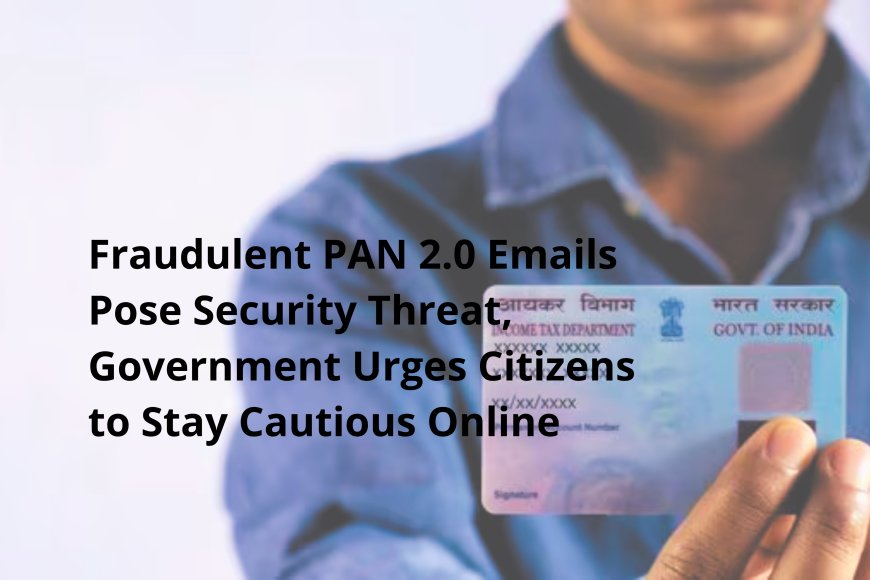Fraudulent PAN 2.0 Emails Pose Security Threat, Government Urges Citizens to Stay Cautious Online
The Government of India warns against a fake “PAN 2.0” email scam aiming to steal personal data through phishing websites posing as official portals.

The Indian government has sent out a strong warning about a new phishing scam that is tricking people by promising them of a "PAN 2.0" card. Fake emails that are meant to steal your personal and financial information are spreading this fraud. These emails look real and may have false government logos, contact information, and urgent messages that make the reader feel like they need to act right now. Officials have determined that these messages are completely fraudulent and have nothing to do with any government work.
A lot of people are filing their taxes online right now, so the warning comes at a good time.Scammers are leveraging the trust that people have in the government communication to trick them.The government advises people to be careful and not fall for online scams, which are getting increasingly widespread.
These phishing emails are coming from suspicious email addresses.The subject line may say something like "Get Your PAN 2.0 Card." There is usually a link in the email that looks like it goes to a government website, but it actually goes to a fake page.
This fake site then requests for private information like your PAN number, Aadhaar number, bank account information, and other personal information. If you give your information here, it could be used to steal your identity, steal money, or get into your accounts without your permission.
Both the Income Tax Department and the Press Information Bureau (PIB) have said that these emails are fake. The PIB Fact Check unit even warned consumers not to click on links like this on social media.
The Income Tax Department has also made it clear that it never sends emails requesting for personal or financial information. You can only get official services from websites that finish in .gov.in or .nic.in.
To avoid these kinds of scams, follow these simple steps:
- Always check that the sender’s email ends in .gov.in or .nic.in, and use only official websites for PAN-related services.
- Avoid clicking on suspicious links or downloading files from unknown emails, and report such scams to webmanager@incometax.gov.in or incident@cert-in.org.in.
- Follow verified government accounts like PIB Fact Check for updates on scams.
Staying alert is the best way to protect yourself in today's digital world. Don't believe claims like "PAN 2.0." Before you provide any personal information online, make sure to check it again.
Information referenced in this article is from Times of India







